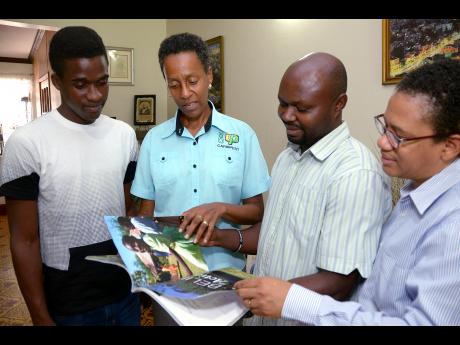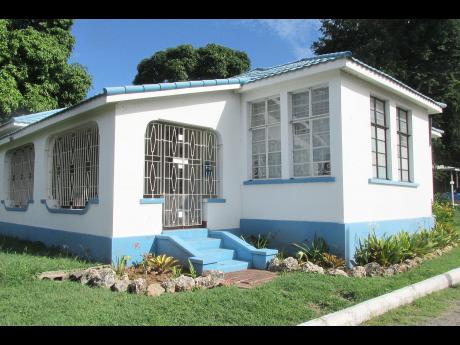The Bahai's faith Part III - The Bahai's in Jamaica
Bahaullah, who lived from 1817 to 1892, is regarded as the founder of the Bahai faith. He said he had a new revelation from God, a message to mankind.
He wrote myriad verses, letters, and books and outlined a framework for the spiritual and material facets of human existence. And on November 27, Bahais over the world observed the 200th anniversary of the birth of Bahaullah.
The faith was brought to Jamaica in 1942 by a Jamaican dentist named Malcolm King, who resided in the United States, and came here to spread the words of the Bahai faith. He held meetings at 190 Orange Street in Kingston. By 1943, the people he had taught founded a spiritual assembly in Kingston.
In 1961, the Bahais in Jamaica elected their first National Spiritual Assembly. It consisted of Randolph Fitz-Henley, William A. W. Mitchell, Alfred Senior, Clarence Ullrich, Alice Maud Gallier, Percival Aiken, Emily Taylor, Margarite Ullrich, and Ruby Taylor.
Ten years after, the Bahai Caribbean Conference was held in Kingston. Governor General Clifford Campbell opened the event, which was attended by 1,200 Baha'is from across the Caribbean, the United States, and Central America.
On the 20th of January, 1974, the Bahais participated in the observance of the first World Religion Day in the Kingston and St Andrew Parish Library. This celebration was introduced in 1950 by the National Spiritual Assembly of the Bahai in the US and is now hosted annually by the Bahai community in Jamaica.
In 2003, to mark the 60th anniversary of the establishment of the first Bahai spiritual assembly in Jamaica, the Baha'i carried out a series of activities. On July 23, 2003, then Governor General, Sir Howard
Cooke declared in a ceremony at King's House that July 25, 2003, was 'Bahai Day'.
ROLE AND INFLUENCE OF FAITH
It has now been 74 years since the first assembly was established, and recently, Family & Religion visited the Bahai National Centre at 208 Mountain View Avenue in St Andrew to discuss the role and influence of the Bahai faith in Jamaica. Glenford Rennis, Keisha Scott (auxiliary board member), and Oscar Effiong (auxiliary board member) represented the National Spiritual Assembly.
In addition to the Mountain View Assembly, there is one each in St Thomas, St James, and St Catherine. So, why not more, after seven decades? Scott said the Universal House, the Bahai international overarching body, wants activities to take place in the homes and communities of members.
Thus, instead of waiting for people to go to the assemblies, they reach out to them in their own spaces. The current focus is on children aged 11 to 15, who are engaged in "book work and social projects", with the consent of their parents.
And while it is easier to reach the young ones, Effiong explained that it is challenging to get adults to embrace a message with which they are not familiar. They have other beliefs or might have already been members of other denominations. So it takes a while to get familiar with the people in the communities and to share the message with them.
The Bahai message of love, unity, and hope is not to convert people, but to help them grow, Rennis remarked. He believes that God is at the centre of every denomination, and His word is brought to us by different prophets of which Bahaullah was one.
Rennis said that his life became tumultuous when he became involved in the Bahai faith. His family and associates could not understand the change of lifestyle and mindset. Being a Bahai was so different from everything they knew.
In the Bahai Assembly, there is no one pastor who constantly leads worship in a set format. The Assembly is managed by a board that is elected by the members. All decisions are made by the board, and any member can conduct a devotion in his or her own way. Members are expected to read the word for themselves and inquire to widen their knowledge.
Then, there are auxiliary board members who intermediate between the board and everybody else. Scott is one such intermediary. She was born a Bahai, as well as her siblings. She is now the only one who is a Bahai. Her siblings, she said, prefer the church where the pastor leads the congregation and where there is much "excitement".
Scott, whose dyed hair is cut in a popular style, said there is no strict dress code for devotion. Modesty is expected, however. In terms of numbers, she said that she knows the change will come with the outreach efforts among children. It is not about the hype or the excitement, but about service and "progressive revelation".
"I'm really hoping that Jamaicans will open their minds to something different. Just take a look ... and see if it is something that can work for you," she said.


